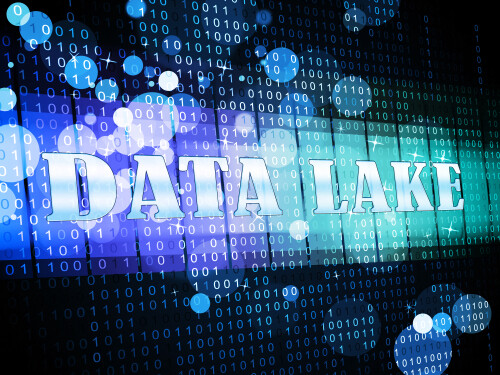Big data and Data Lakes have been technological buzzwords for the past 7-8 years. And enough and more evidence suggest that its adoption has been an enormous success. These days, businesses use data to define their internal business objectives and metrics. Plus, it takes care of the externals as well in terms of the relationship between the company and suppliers and customers, and more. As it?s said, what needs to be managed need to be measured, and big data helps exactly with that as it takes advantage of the existing data and optimizes it for current operations. However, here?s the thing: None of this data is rigid. Old data makes way for new. Meaning, while using data to drive the business forward, you need to be ready for new improvements and adjustments. This is where a Data Lake comes into the picture. Data Lakes offer agile analytics to measure you?re continually evolving the business. Here, I listed some of the significant benefits of a Data Lake. But then, let?s start with a brief on Data Lakes and need for them before diving into the benefits part.
What?s A Data Lake?
A data lake is a one-stop-shop of all your data – whether it?s structured, or unstructured that doesn’t matter. Simply put, you could store data in as is without worrying about the structuring part or running different kinds of analytics on them.
The Need for A Data Lake
It has been observed that organizations that were able to generate business value from their data outdid their peers. According to the Aberdeen survey, the organization that implemented Data Lakes outperformed similar companies by almost 9%. These organizations performed new types of analytics such as machine learning over log files, social media, and internet-connected devices stored in the data lake. This has enabled businesses to identify and implement opportunities, helping companies to grow faster, specifically, in terms of productivity, attracting and retaining customers, making informed decisions and more.
Business Benefits of Data Lakes
All-around Availability of Data
A data lake ensures that all the employees – irrespective of their designation – has access to data. This is called data democratization. For instance, currently, only the top bosses in your organization may have the authority to collect all types of data to gain a sense of things, before making crucial decisions. However, with a Data Lake, the necessary data is made available to all levels of employees, irrespective of their level or the designation. Let?s say, if you are in the admin, you will have access to all the admin data, in terms of used, unused stationery and more. Plus, you will have access to other data as well, which you could choose to ignore. Simply put, you could compare a Data Lake with the likes of LinkedIn. Just as in the case of LinkedIn, you decide whom you want to connect with or not to connect with, likewise in the case of Data Lakes, you could choose the required data to meet different business objectives.
Fetches Quality Data
Thanks to the processing power of Data Lakes and the tools used, businesses can effortlessly fetch good quality data.
Technological Benefits of Data Lakes
Real-time decision analysis
Data lakes take advantage of large quantities of consistent data and deep learning algorithms to arrive at real-time decision analytics.
Supports SQL and other languages
Conventional data-warehouse technologies support SQL which is good enough for simple analytics. For advanced use cases, you need more alternatives to analyze data. Big Data Lake offers various options and language support for analysis. It?s got Hive/Impala/Hawq which supports SQL. Plus, it provides features to tackle advance requirements. For instance, to analyze data flow, you have PIG, for machine learning, you could use Spark MLlib.
Scalable
Unlike traditional data warehouse, Data Leaks offers scalability and is inexpensive as well.
Versatile
A data lake can store both structured and unstructured data from diverse sources. In other words, it can store XML, logs, multimedia, sensor data, chat, social data, binary, and people data.
Schema Flexibility
For traditional schema, you need to have your data in a structured format. Traditional data warehouse products are schema based. But for analytics, this could prove to be a glitch as the data needs to be analyzed in its raw form. Hadoop Data Lake enables you to be schema free, or you could come up with multiple schemas for the same data. In short, it allows you to separate schema from data, which is good for analytics.
Conclusion
Data lakes have all kinds of great benefits for companies, data managers, and data processors. This is why it’s so important to learn more about what they are and what they can do!

